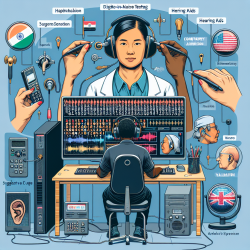As a Special Education Director, I understand the immense value that telerehabilitation brings to our schools and communities. However, one significant barrier that professionals in this field face is the issue of licensure portability. This challenge restricts practitioners from offering their services across state lines, ultimately limiting access to essential care for many students.
According to the research article "Resolving Barriers to Licensure Portability for Telerehabilitation Professionals," published in the International Journal of Telerehabilitation, several strategies can help overcome these barriers. Here, we explore key findings and practical steps that practitioners can take to improve their skills and extend their reach.
Understanding the Barriers
Rehabilitation professionals, such as audiologists, occupational therapists, physical therapists, and speech-language pathologists, are often required to hold a professional license in each state where they practice. This situation is akin to needing a different driver's license for every state, creating a cumbersome process involving duplicative paperwork, expenses, and lengthy wait times.
Key Recommendations for Licensure Portability
The research highlights several models for licensure portability that could be adopted to ease these challenges:
- Mutual Recognition Compacts: Similar to a driver's license, this model allows practitioners to hold one full license in their home state and practice in other states that have entered into a legal agreement.
- Expedited License: This model utilizes core standards and a uniform application process, enabling credential verification to be stored and sent to multiple states.
- Limited License: A license granted by each state limited to telehealth practice across state lines, in addition to a full license in the home state.
- National License: Based on universal standards for each profession, administered at the state or national level.
- Federal Pre-emption: The federal government grants licensure for interstate practice for programs funded by federal dollars.
Benefits of Inter-State Licensure Portability
Implementing these models offers numerous benefits, including:
- Increased access to specialists for clients regardless of state boundaries.
- Reduced duplicative processes and costs for state governments.
- Lower fees and faster processing times for clinicians.
- Enhanced oversight and accountability for professionals practicing across state lines.
- Time efficiencies and reduced travel for both clients and providers.
- Improved client compliance, motivation, and therapeutic outcomes.
Action Steps for Practitioners
As a practitioner, you can take several steps to advocate for and benefit from licensure portability:
- Stay Informed: Keep up-to-date with the latest research and developments in licensure portability through conferences, webinars, and publications.
- Advocate for Change: Engage with professional organizations and licensing boards to support initiatives aimed at facilitating licensure portability.
- Network with Peers: Connect with other professionals in your field to share experiences and strategies for overcoming licensure barriers.
- Explore Continuing Education: Participate in training and certification programs that may offer reciprocity or expedited licensure options.
By implementing these steps and staying engaged with ongoing efforts to resolve licensure barriers, you can help ensure that telerehabilitation services are accessible to all who need them, regardless of geographic location.
To read the original research paper, please follow this link: Resolving Barriers to Licensure Portability for Telerehabilitation Professionals.










